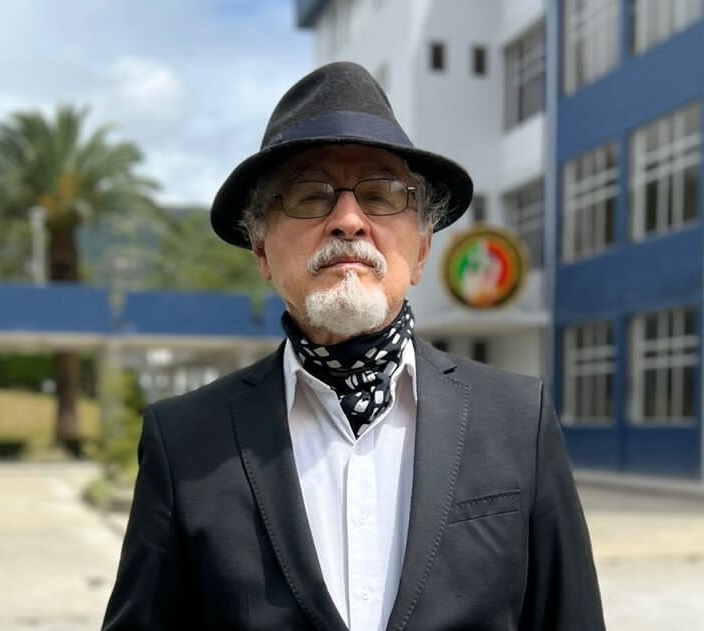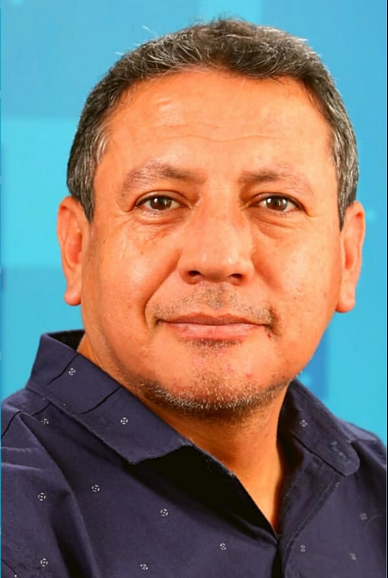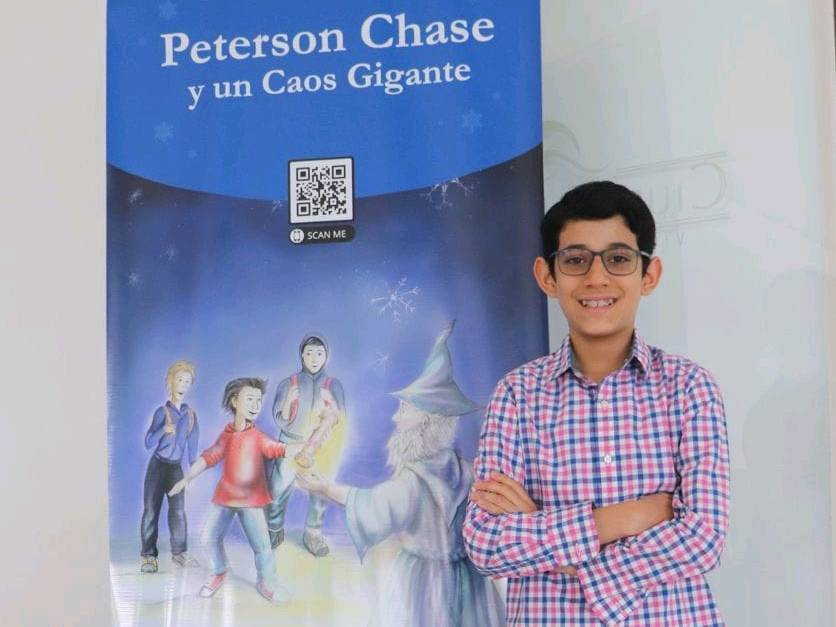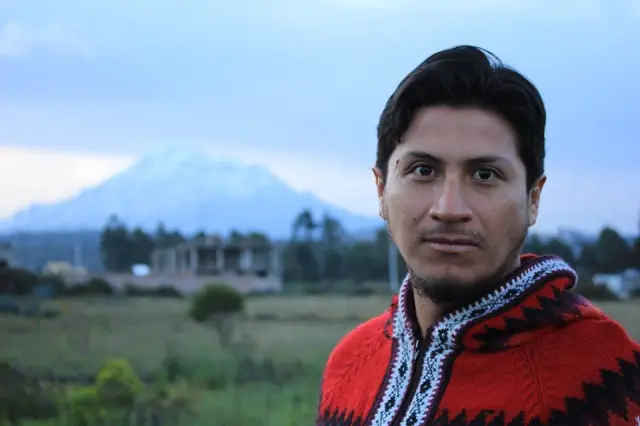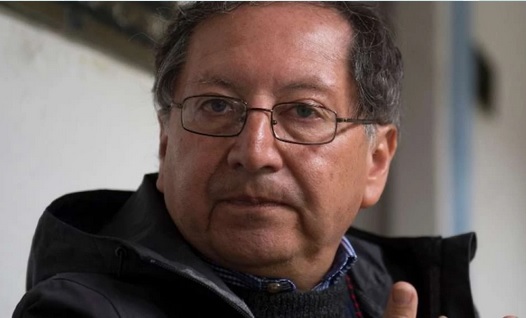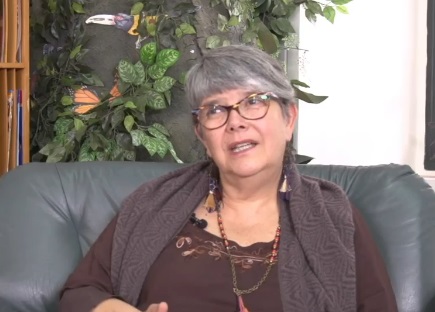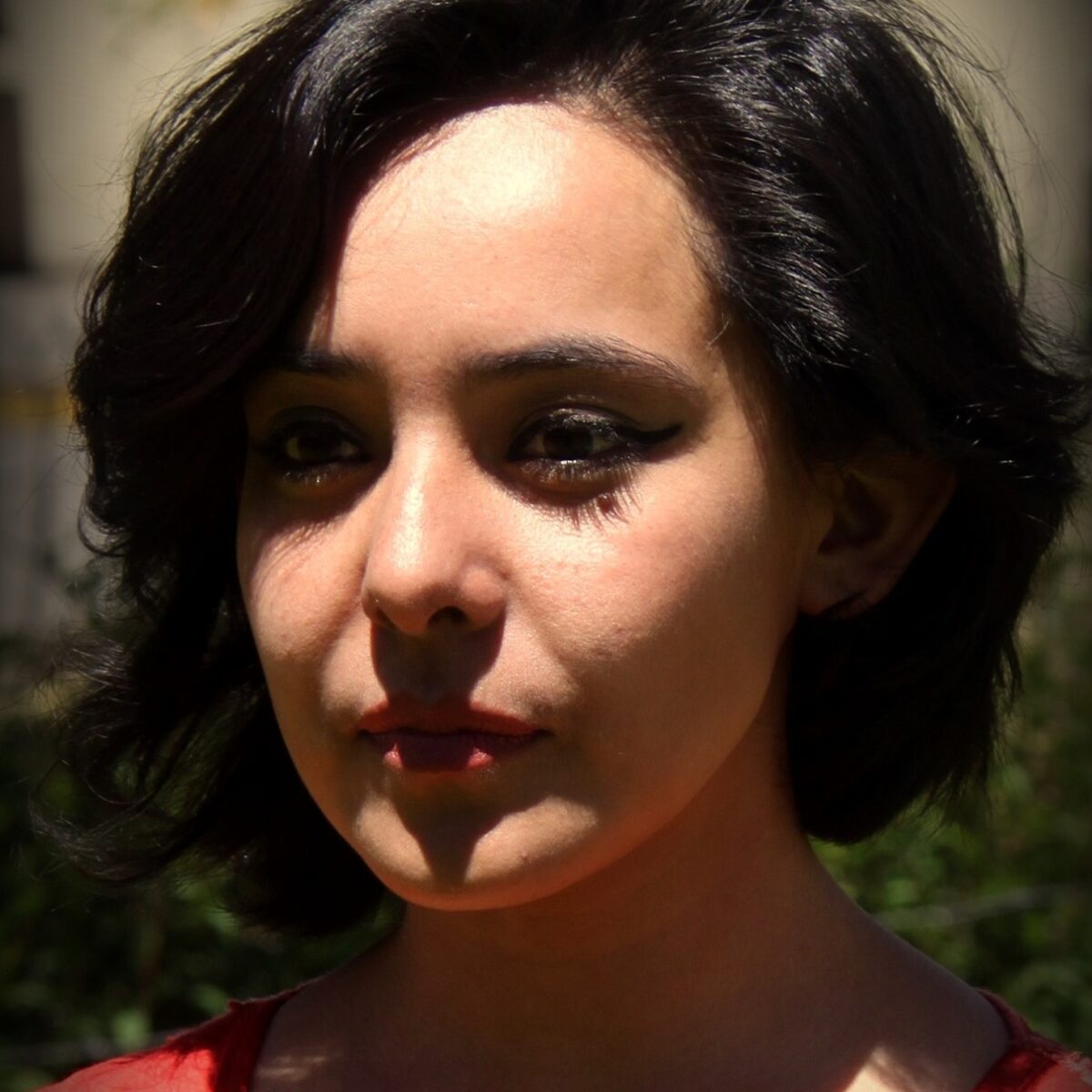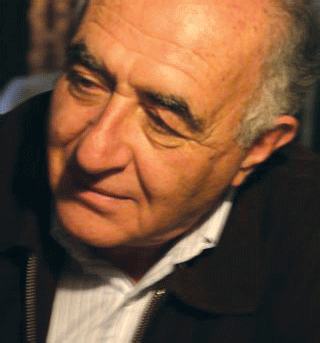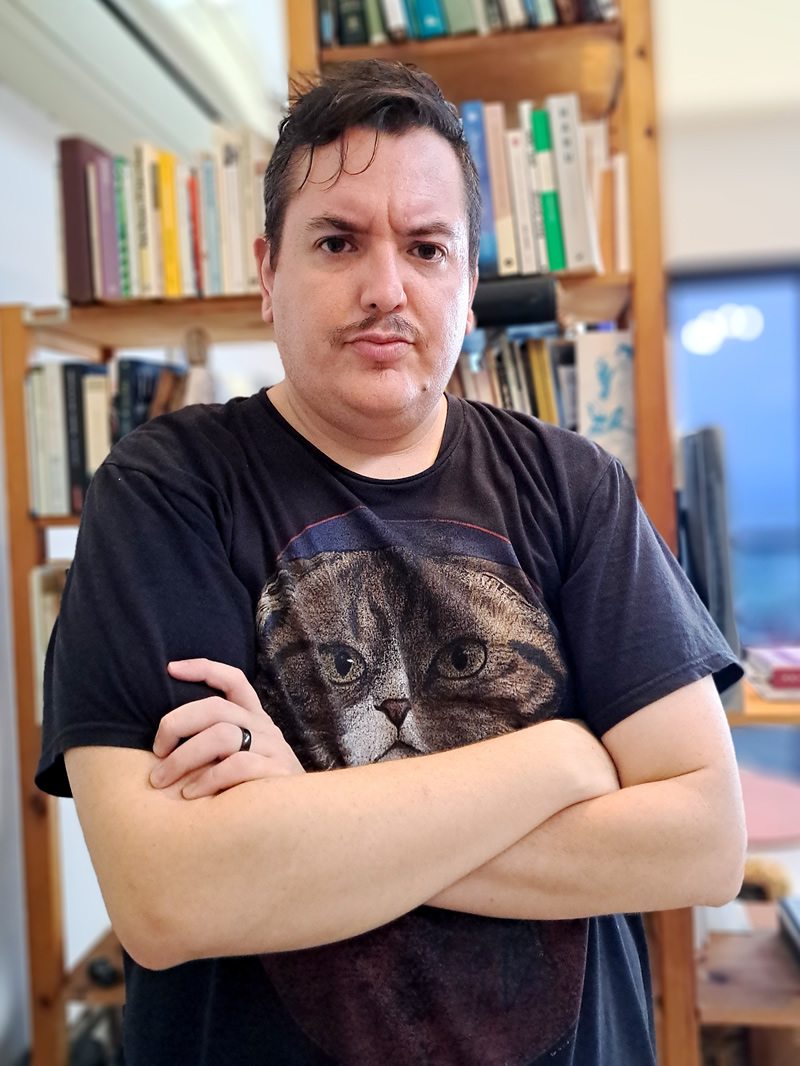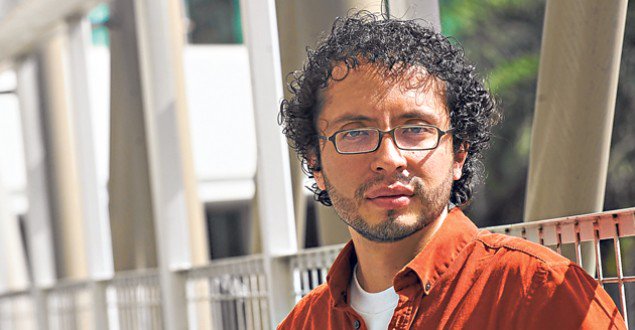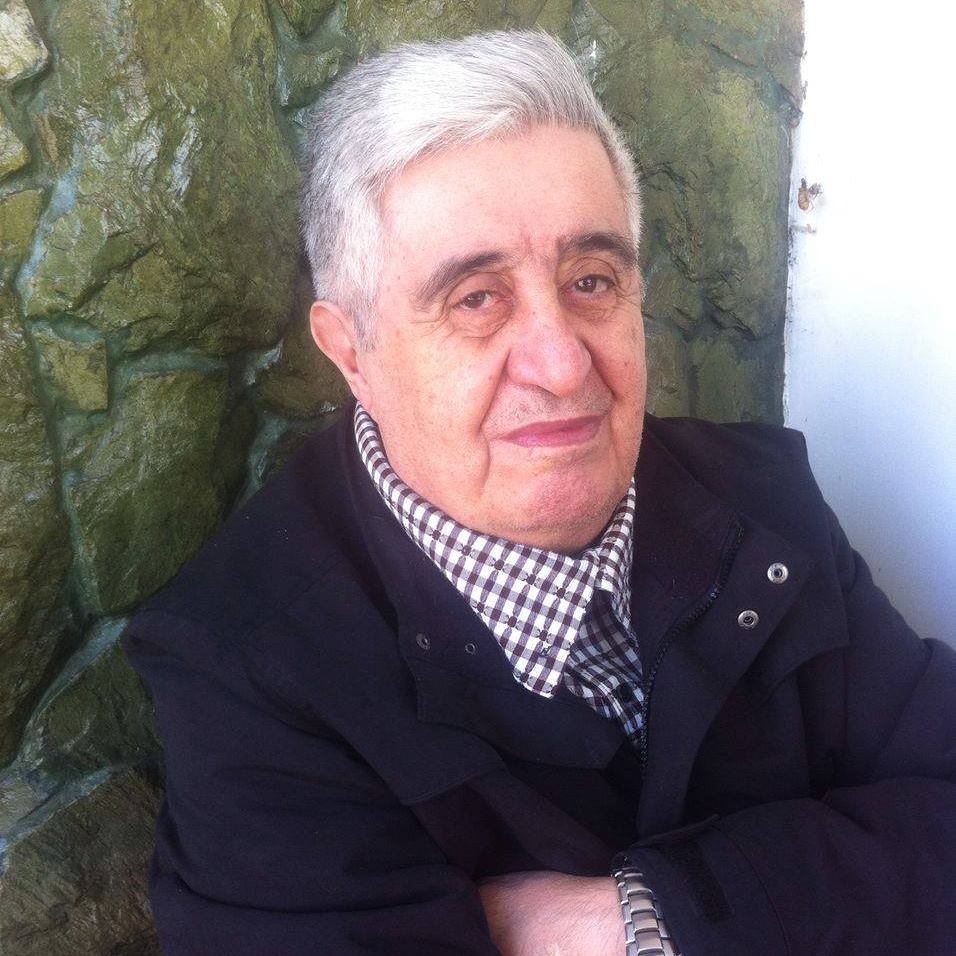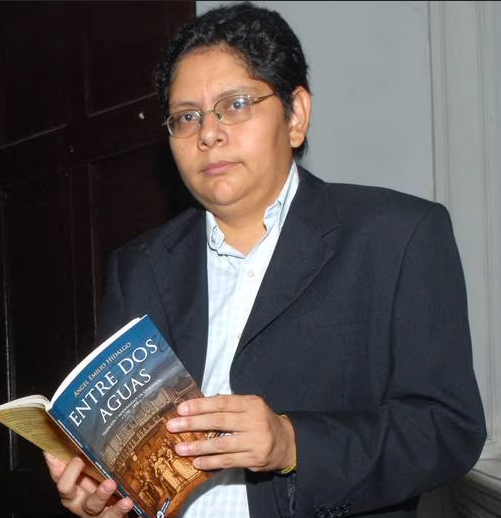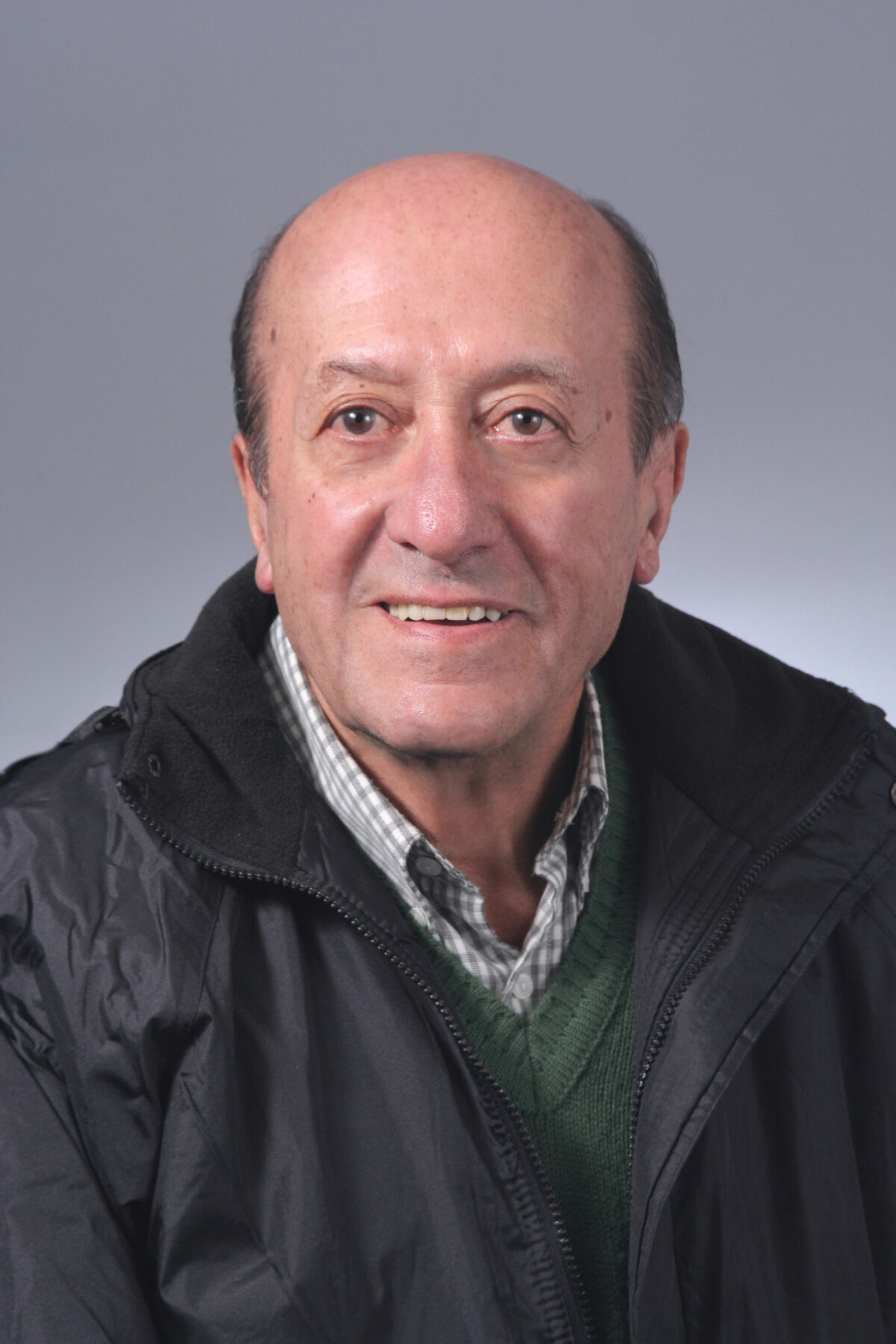Carlos Alfonso Carrión Figueroa (Malacatos, Loja, January 25, 1944) is an Ecuadorian novelist and short story writer. He has won several prestigious literary awards, including the José de la Cuadra Award for his 1982 short story collection “El más hermoso animal nocturno” [The Most Beautiful Nocturnal Animal], the Joaquín Gallegos Lara Award twice, first for his 1995 short story book “El corazón es un animal en celo” [The Heart is an Animal in Heat] and later for his 2005 novel “¿Quién me ayuda a matar a mi mujer?” [Who’ll Help Me Kill My Wife?], which also earned him the “Lira y la Pluma” Award. Additionally, his work has been featured in various anthologies. In 2013, he won the Miguel Riofrío Award for his novel “La mantis religiosa” [The Praying Mantis]. Recently, in 2022, Carrión was honored with the Eugenio Espejo National Prize, the highest literary recognition in Ecuador.
Continue reading “Carlos Carrión”Category: 21st Century Writers
Mario Conde
Mario Conde (Ambato, 1972) is a highly accomplished Ecuadorian writer, renowned for his works in children’s and youth literature. In addition to his successful writing career, he is also a distinguished university professor of Latin American Literature. Throughout his career, Mario has published numerous novels and volumes of short stories in collaboration with a variety of esteemed publishers such as Grupo Editorial Norma, Alfaguara Juvenil, Santillana, Loqueleo, SM el Barco de Vapor and Abracadabra Editores. In recognition of his literary achievements, he was awarded the prestigious Alicia Yánez Cossío Prize by the provincial government of the Pichincha province in 2003. With his remarkable talent, Mario has left an indelible mark on the Ecuadorian literary landscape and continues to inspire future generations of writers.
Continue reading “Mario Conde”Cristian Cevallos de la Torre
Cristian Cevallos de la Torre is an Ecuadorian writer. In 2022, at twelve-years old, he published a 113-page story, “Peterson Chase y un caos gigante” [Peterson Chase and a Giant Chaos], which he began writing at the age of 7. The book, which is also available in English, is full of magic, fantasy and adventure. It was published by Lux et Gaudium, a publishing company created by his mother Ana de la Torre to release his book. Among those who accompanied him during the book’s launch presentation were former Ecuadorian Vice President and writer Rosalía Arteaga and the award-winning Argentine poet and writer Ernesto Kahan. Cevallos intends to write a sequel to his book.
Continue reading “Cristian Cevallos de la Torre”Freddy Ayala Plazarte
Freddy Ayala Plazarte (Aláquez, Latacunga, Ecuador, 1983) is an Ecuadorian poet, essayist, and university professor. In 2015, his poetry book “Rebeliones al filo de una sinfonía” won the prestigious Jorge Carrera Andrade National Poetry Prize. His latest poetry book, “Un siglo en el vientre de las vasijas” (2021) was a finalist of the 2nd edition of the Vicente Huidobro International Poetry Award, Valparaíso. He has written several literary studies, including “Vientos paralelos: acotaciones sobre cultura y literatura latinoamericana” (2015) and two studies on poet Hugo Mayo. He was a member of the literary workshops at the House of Ecuadorian Culture during 2005-2007. He was a member of the literary group la.kbzuhela of Quito. He is a professor at the Central University of Ecuador.
Continue reading “Freddy Ayala Plazarte”Diego Velasco Andrade
Diego Velasco Andrade (Quito, 1958) is an Ecuadorian poet, fiction writer, editor, professional architect, and university professor. In 1982, he joined Miguel Donoso Pareja’s Literary Workshop at the House of Ecuadorian Culture. He has published a number of poetry collections and fiction books. Since the 1980s, he has been a professor of Semiotics and Design at the Central University of Ecuador. His 2002 novel “¿El poeta ha muerto?” [Is the Poet Dead?] was adapted for the stage by the Ecuadorian group Ojo de Agua and staged in Ecuador, Spain and Belgium. In the 1980’s he was a founding member of a literary group called El Matapiojo. For many years, starting in 2005, he directed the literary workshops of the House of Ecuadorian Culture. His works have appeared in several Ecuadorian literary anthologies.
Continue reading “Diego Velasco Andrade”Michael H. Handelsman
Michael H. Handelsman (Weehawken, New Jersey, United States, May 11, 1948) is an American university professor, scholar, literary critic, and writer. He is professor emeritus of Latin American literature at the University of Tennessee, Knoxville, where he has been teaching since 1976. He has directed the university’s Latin American Studies and Global Studies programs. His principal area of specialization is Ecuadorian literature and culture. Some of his books include: “Amazonas y artistas: Un estudio de la prosa de la mujer Ecuatoriana” (1978), “Lo afro y la plurinacionalidad: el caso ecuatoriano visto desde su literatura” (1999), and “Leyendo la globalización desde la mitad del mundo: identidad y resistencias en el Ecuador” (2005) which received the Isabel Tobar Guarderas award in Quito and the A.B. Thomas award in the U.S. He’s also written extensively on Benjamín Carrión, including: “En torno al verdadero Benjamín Carrión” (1989), “El ideario de Benjamín Carrión” (1992) and “Benjamín Carrión: el pensamiento fundamental” (2007). He’s been a visiting professor at the University of Kentucky, the Catholic University of Santiago de Guayaquil (UCSG), and the Simon Bolivar Andean University of Quito. Since November 12, 2012, he’s been a foreign corresponding member of Ecuador’s National Academy of Language.
Continue reading “Michael H. Handelsman”Soledad Córdova
Soledad Córdova, or Soledad Fernández de Córdova (Quito, December 19, 1957) is an Ecuadorian writer of children’s literature, poet, and a librarian. On October 24, 2008 she was appointed director of the Eugenio Espejo National Library of Ecuador, replacing Laura Romo de Crespo. Córdova belonged to the literary workshops of Abdón Ubidia and Diego Velasco. She was a fellow at the Reference Service of the National Library of Spain, and at the General Directorate of Books, Archives and Libraries of the Ministry of Culture of Spain. Her works have received national and international awards.
.
Continue reading “Soledad Córdova”Katerine Ortega
Katerine Ortega (Quito, 1986) is an Ecuadorian poet, short story writer, and audiovisual communicator. Her works include: “Somos fuego” (2012), (a compilation of poems by various poets), “Naranja entera” (micropoems), La promesa” (videopoems), and she also contributed to the books “Ciencia y simbólica andina ecuatorial” and “Loma Grande: Memoria Histórica y Cultural” (section on mythology). Her stories and poetry have appeared in literary magazines such as Sapo (Chile) and Matapalo (Ecuador), as well as the anthology “Amor y soledad” (Spain). She was part of the literary workshops of the Benjamín Carrión House of Ecuadorian Culture, the Ecuadorian Society of Writers, Kafka Escuela de Escritores, among others. In 2020, she released “Tarasca,” her first collection of short stories.
Continue reading “Katerine Ortega”Modesto Ponce Maldonado
Modesto Ponce Maldonado (Quito, 1938) is an Ecuadorian novelist, short story writer, and businessman. He began writing fiction in his later years. At the age of 60, he published his first collection of short stories, “También las arcillas” (1997), which was followed by a novel, “El palacio del diablo” [The Devil’s Palace] (2005), which won the Joaquín Gallegos Lara Prize for best novel of the year. The novel’s title was taken from the name of a brothel that formerly stood in colonial Quito’s La Ronda neighborhood. Using the pen name Sergio Lozada, his second novel, “La casa del desván,” was shortlisted for the prestigious Premio Iberoamericano Planeta-Casa de América de Narrativa award. The novel, released by Editorial Planeta in 2008, is a first-person account of a schizophrenic man’s thoughts while he is institutionalized for his condition. In 2017, his novel “Adela” received honorable mention at the La Linares Short Novel Award. Ponce has also contributed to various literary magazines, including El Búho, Eskeletra, Kipus and Letras del Ecuador.
Continue reading “Modesto Ponce Maldonado”Jorge Luis Pérez Armijos
Jorge Luis Pérez Armijos (Guayaquil, 1987) is an Ecuadorian, poet, essayist, editor, and translator. He has authored 4 poetry books, including “Rimas sin sarcasmos” (2012), “Primavera en invierno” (2014), “Lira bien temperada” (2016), and “Clases de catalán” (2018). His best known work is perhaps “Aquel que pudo ver lo Profundo” (2019), a poetic translation of the Epic of Gilgamesh. In 2020 he published, “La risa: Ensayo sobre el significado de lo cómico,” a French-to-Spanish annotated translation of “Le Rire. Essai sur la signification du comique” [Laughter: An Essay on the Meaning of the Comic], a collection of 3 essays by French philosopher Henri Bergson first published in 1900 in the French literary magazine Revue de Paris. He has also published a translation of Shakespeare’s Sonnets, entitled “Variaciones Shakespeare” (2017), and Shakespeare’s narrative poem, “Venus y Adonis” (2021).
Continue reading “Jorge Luis Pérez Armijos”Wladimir Chávez
Wladimir Alfredo Chávez Vaca (Quito, 1977) is an Ecuadorian novelist, short story writer, and academic. He has lived in Norway for over two decades and currently serves as an associate professor of Spanish and Latin American literature at Østfold University College. Chávez’s literary work, which often explores themes of migration, identity, and exile, has garnered significant recognition. His short story collection En el corazón del silencio [In the Heart of Silence] won the Biennial Pichincha Prize in 2014, and his novel El olor de las flores quemadas [The Smell of Burning Flowers] was awarded the Miguel Riofrío National Literary Award in 2018. Some of his works have been translated into English and Italian.
Continue reading “Wladimir Chávez”Alberto Ordoñez Ortíz
Alberto Ordoñez Ortíz (Cuenca, March 16, 1942 – Ibidem, August 29, 2022) was an Ecuadorian poet, writer, and lawyer. During the last years of his life he worked as an opinion columnist for the daily El Mercurio of Cuenca. From 1962 – 2004 he published at least 10 poetry books. As a poet, he won various awards, including First Prize in the 1963 National Poetry Contest sponsored by the State University of Cuenca, Second Prize in the 1978 Ismael Pérez Pazmiño Poetry Contest for Perfil del hombre y su desvelo, and the First Prizes in the 1992 Poetry Contests promoted by the Ecuadorian Social Security Institute of Ecuador. In 2003, the Municipality of Cuenca awarded him the “Fray Vicente Solano” Award, an award given to the best poet of the year in Cuenca, and in that same year, the National Congress of Ecuador awarded him the “Vicente Rocafuerte” Prize, in recognition of his literary work and contribution to Ecuadorian poetry.
Continue reading “Alberto Ordoñez Ortíz”Ángel Emilio Hidalgo
Ángel Emilio Hidalgo Ortiz (Guayaquil, 1973) is an Ecuadorian historian, a poet, a professor at Guayaquil’s University of the Arts (UArtes) since 2014, and the director of the Guayaquil Municipal Library since 2021. His poetry collections include “Beberás de estas aguas” (1997, First Prize in the Ismael Pérez Pazmiño National Poetry Contest), “El trazado del tiempo” (2003, honorable mention in the National Literature Contest of the Guayaquil Municipality), “Fulgor de la derrota” (2010), and “Acapulco so close” (2021). Hidalgo’s poems have been published in various Ecuadorian and Latin American anthologies. such as “Porque nuestro es el exilio” (2006), which features the poetry of three Ecuadorian authors, Ángel Emilio Hidalgo, Luis Carlos Mussó and Ernesto Carrión, as well as Fabián Darío Mosquera, a Colombian poet living in Guayaquil. In addition, he is the co-author of more than 20 books of historical and cultural essays and is a member of Ecuador’s National Academy of History.
Continue reading “Ángel Emilio Hidalgo”Claudio Mena Villamar
Claudio Mena Villamar (Quito, May 28, 1928) is a poet, essayist, journalist, lawyer, and professor. In 1976, he won first prize in the Ismael Pérez Pazmiño poetry contest of the newspaper El Universo for “Las líneas de tus manos” [The Lines of Your Hands]. On February 8, 2007, as he was inducted into the Ecuadorian Academy of Language, he delivered a discourse on the concept of time entitled “Por los túneles del tiempo” [Through the Tunnels of Time], which was released as a book by Editorial El Conejo in Quito, Ecuador, in 2009, and awarded by the Central University of Ecuador. After being appointed pro-secretary of the Academy following the retirement of Filoteo Samaniego in 2006, he was appointed Secretary in 2008 and served until 2013. He is also a member of the Literary Law Society, the House of Ecuadorian Culture’s Academic Section of Literature, the National Academy of History and a founding member of the Ecuadorian Society of Writers “Grupo America.” He was an editorial writer for the newspapers El Tiempo and Hoy, and a columnist for several other publications.
Continue reading “Claudio Mena Villamar”Nicanor de J. Alejandro Reyes
Nicanor de Jesus Alejandro Reyes (Santa Elena, December 24, 1928) is an Ecuadorian poet. In 1967, he took First Prize in the Ismael Pérez Pazmiño Poetry Contest (for “Divagaciones”). In 2005, he published a collection of 33 poems entitled, “Anclas de la ternura,” among which “La guayaquileña bonita” [The Beautiful Guayaquilean Woman] is perhaps his best known poem. He has been a part of the House of Ecuadorian Culture of Guayas.
Continue reading “Nicanor de J. Alejandro Reyes”
